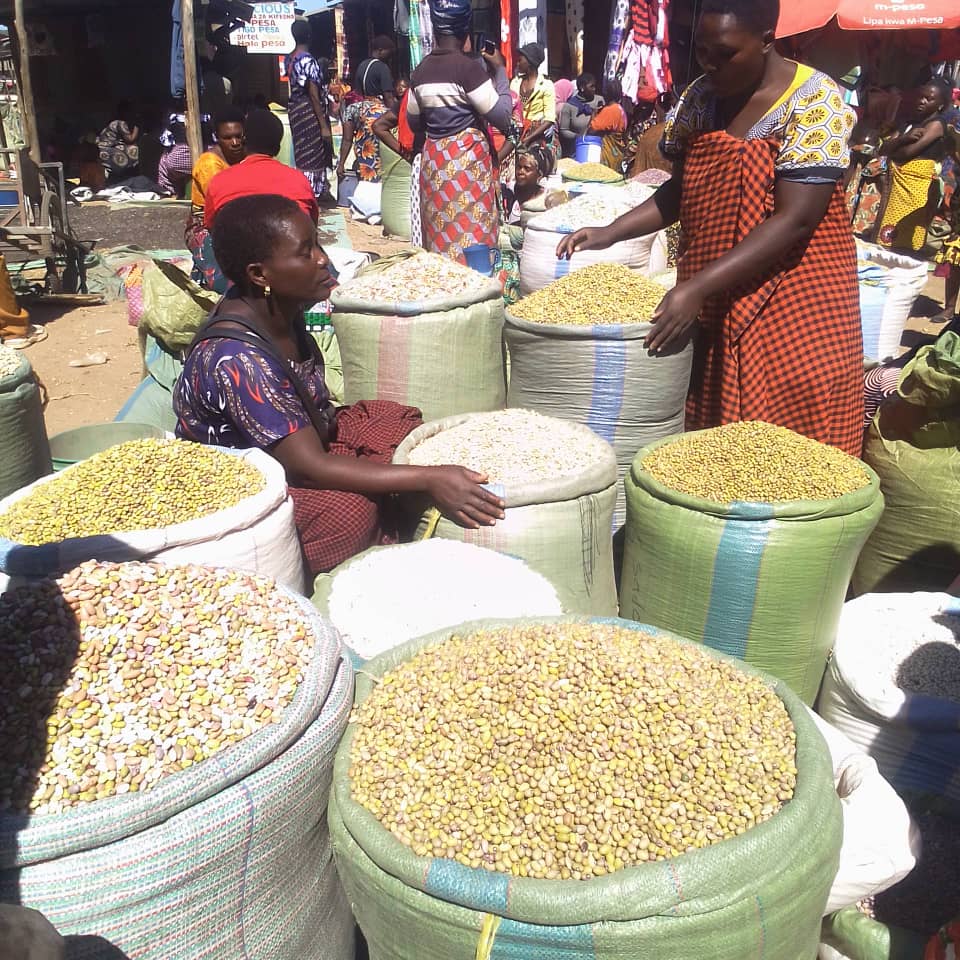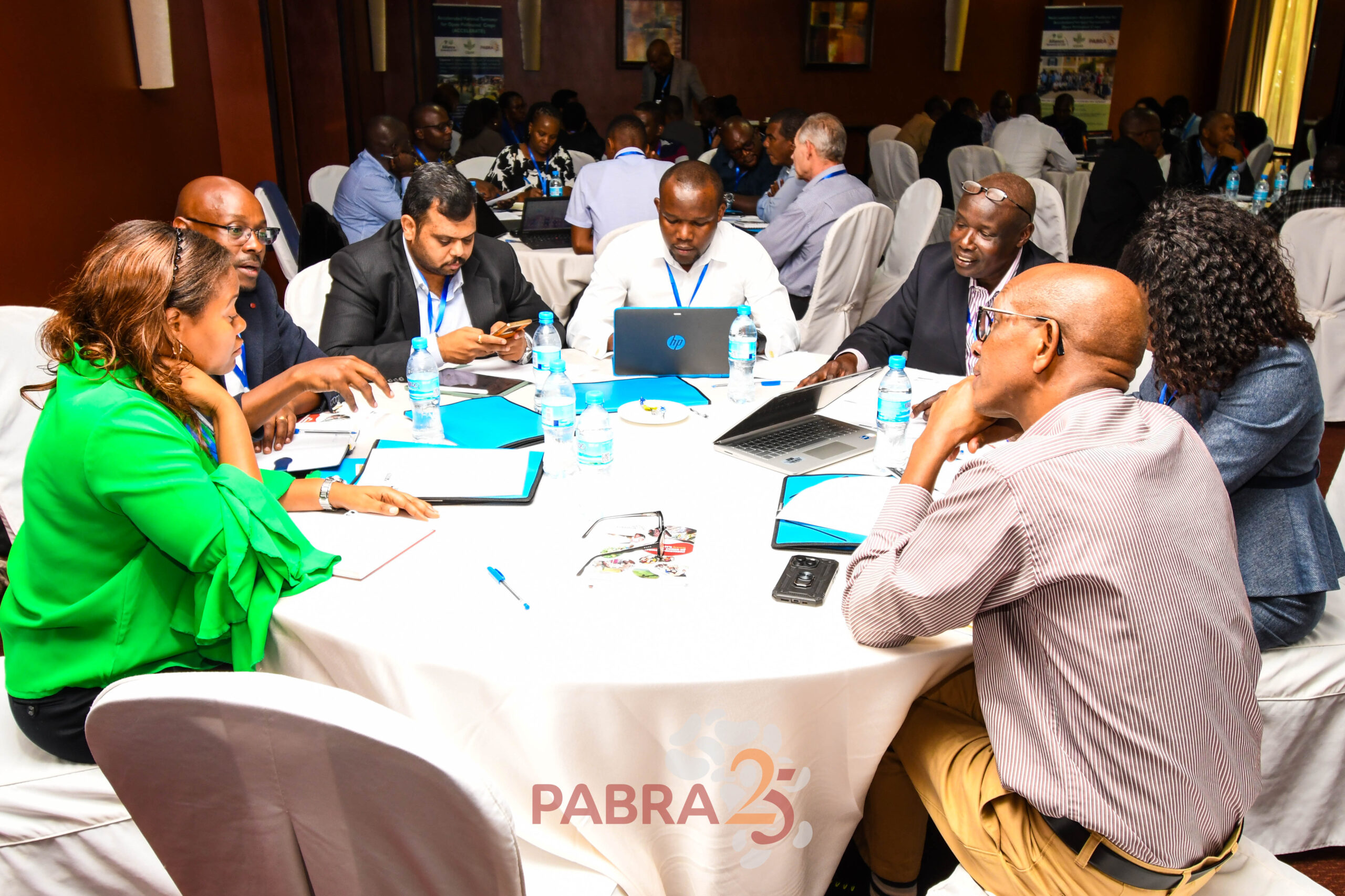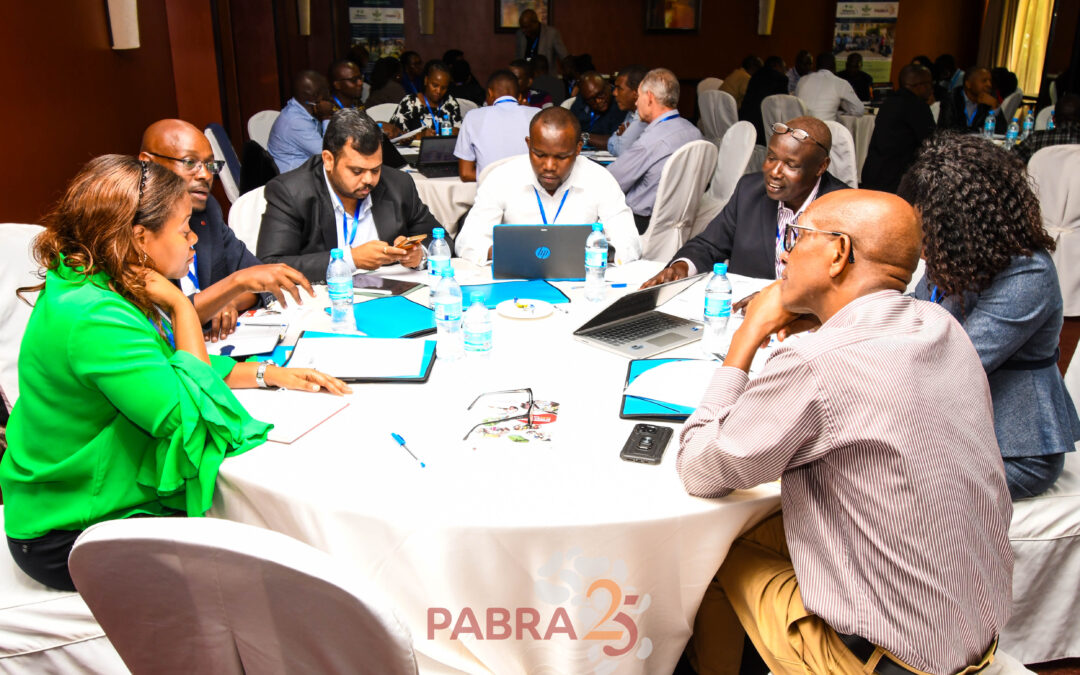Authors: Atupokile Mwakatwila and Justus Ochieng
Challenges facing smallholder farmers and traders in Africa are diverse, with varietal turnover rates of open-pollinated varieties (OPVs) such as groundnuts, common bean and Sorghum often proving inadequate to meet the demands of a rapidly evolving landscape by smallholder farmers and traders. Despite combined efforts by programs asked by Africa Green Revolution in Africa (AGRA), The Accelerated Varietal Improvement and Seed Delivery of Legumes and Cereals in Africa (AVISA), and Tropical Legumes (TL-III), which have significantly increased the availability of improved seed varieties through interventions aimed at improving the performance of formal and semi-formal seed systems, these sources fulfill on average a mere 3% of farmers’ planting requirement.
The formal seed sector is characterized with low margins, high last-mile consumer costs, and unpredictable demand due to the dominance of low-cost alternatives like farmers’ self-saved seed. Semi-formal entities, supported by development partners to reach more farmers with affordable seeds, have equally struggled to grow rapidly.

In contrast, the informal seed sector predominantly driven by traders and off takers is growing, gradually succeeding self-saved seed as the primary source for smallholders in Africa for a wide variety of OPV crops. This vast quantity of planting material is provided regularly at acceptable prices by local and regional vendors, who also trade in grain and shift to selling seed, often saving and recleaning superior lots of grain for sales of planting material during the planting season.

Accelerated Variety Turnover for Open-pollinated Crops (ACCELERATE) project was designed as a signal of change in seed systems in Africa. It is a four-year project (2023-2026) funded by the Bill & Melinda Gates Foundation (BMGF), jointly implemented by the Alliance of Bioversity International and CIAT (ABC) /Pan-Africa Bean Research Alliance (PABRA) as the lead implementer in collaboration with the Tanzania Agricultural Research Institute (TARI), Tanzania Official Seed Certification Institute (TOSCI) and International Maize and Wheat Improvement Center (CIMMYT).
The ACCELERATE project aims to create a scalable model that fosters the rapid adoption of new OPV crop varieties and accelerate varietal turnover in Tanzania. The key strategy involves linking the capacities of formal, semi-formal, and informal seed sectors with existing sources of demand. Recognizing that grain traders are pivotal in driving demand, the project focuses on engaging them with new variety opportunities, connecting them to reliable seed sources, and capitalizing on the demand they generate throughout the seed value chain. The project believes that achieving its goals will not only catalyze the adoption of new varieties but will also play a crucial role in supporting smallholders in adapting to climate change. This, in turn, aligns with broader strategic objectives, including enhancing on-farm productivity, increasing farmer income, ensuring food security, and promoting improved nutrition. The ACCELERATE project stands as evidence to the transformative potential of collaborative initiatives in reshaping agricultural landscapes and ensuring sustainable and resilient futures for smallholder farmers in Tanzania.
The project is currently in its second year of implementation. Significant progress was made in the first year, which involved achieving various milestones and establishing a roadmap to expedite activities during the remaining implementation period. In 2023, several accomplishments were realized, including the completion of a baseline study that aimed to identify the interests, drivers, constraints, and opportunities for large traders, small/marketplace traders, and institutional seed markets in adopting improved varieties of sorghum, beans, and groundnuts. The summary of the findings is presented here and the full report available in the this link. Besides, partners to needed to commercialize new varieties and accelerate variety access and turnover ranging from development and humanitarian organizations, seed companies, government agencies or institutions, traders and farmer organizations were identified in the first year.
The Alliance as lead implementer of the project provides facilitation and coordination role to other implementing partners, and in year 1, annual planning meeting (APM) was organized at Mt. Meru Hotel in Arusha, Tanzania. The meeting brought about over fifty (50) participants from diverse backgrounds and expertise sought to gather inputs from multiple stakeholders to accelerate varietal adoption and turnover in Tanzania by tapping into the power of large and small-scale or marketplace traders, institutional seed buyers and humanitarian organizations. The objective of the meeting was to review of the 2022/2023 activities, achievements and lessons learned; share the findings and recommendations from landscaping and scoping study; and plan activities for 2023/2024, with a special focus on developing budgets and project work plans for the successful implementation of the project including documentation of project output.

Key lessons and outputs emerged during the meeting through discussions, presentations, group work, and reflections on accelerating adoption and varietal turnover in Tanzania. These insights also served as takeaway messages for the participants.
i. Early Generation Seeds (EGS) is crucial for scaling up adoption. Seed companies should be allowed to produce EGS to address the production gap and meet seed demand. Encourage formal agreements between seed companies and TARI for EGS production.
ii. Revisit the policy or regulation around Quality Declared Seeds (QDS) to increase investment in the QDS production, distribution, and marketing.
iii. Enhance information sharing and strengthen the Multi-Stakeholders Platform (MSP) for discussing seed-related issues. Partners should actively support the MSP, scale up their efforts, and establish strong Monitoring and Evaluation Systems.
iv. Foster linkages among large traders, small traders, aggregators, and marketplaces to facilitate efficient interaction for enhanced adoption of new varieties that can cope with the climate change and meet nutritional needs of the increasing population.
v. Deliberate effort to engage traders in breeding and varietal testing initiatives such as on farm trials, demonstrations etc.
vi. Strengthen data and digital systems and processes to facilitate access, awareness, and information about the new varieties. Explore digital solutions for traders and farmers to boost turnover, productivity, and nutrition security.
The video providing detailed background of the ACCELERATE project is available in Youtube:

